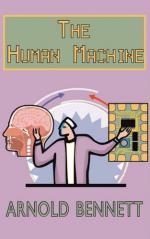The more closely we examine the development of original predispositions, the more clearly we shall see that this development is not inevitable, is not a process which works itself out independently according to mysterious, ruthless laws which we cannot understand. For instance, the effect of an original predisposition may be destroyed by an accidental shock. A young man with an inherited tendency to alcohol may develop into a stern teetotaller through the shock caused by seeing his drunken father strike his mother; whereas, if his father had chanced to be affectionate in drink, the son might have ended in the gutter. No ruthless law here! It is notorious, also, that natures are sometimes completely changed in their development by chance momentary contact with natures stronger than themselves. ‘From that day I resolved—’ etc. You know the phrase. Often the resolve is not kept; but often it is kept. A spark has inflamed the will. The burning will has tyrannised over the brain. New habits have been formed. And the result looks just like a miracle.
Now, if these great transformations can be brought about by accident, cannot similar transformations be brought about by a reasonable design? At any rate, if one starts to bring them about, one starts with the assurance that transformations are not impossible, since they have occurred. One starts also in the full knowledge of the influence of habit on life. Take any one of your own habits, mental or physical. You will be able to recall the time when that habit did not exist, or if it did exist it was scarcely perceptible. And you will discover that nearly all your habits have been formed unconsciously, by daily repetitions which bore no relation to a general plan, and which you practised not noticing. You will be compelled to admit that your ‘character,’ as it is to-day, is a structure that has been built




